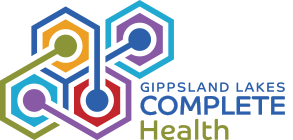In Australia, a national sexual health and wellbeing study by Hillier et al (2010) found that 75% of LGBTIQ youth experience some form of discrimination, 61% experience verbal abuse, 19% have been physically bullied, 24% of lesbian, gay, bisexual people experience depression, and 36% of trans Australians experience depression.
The International Day Against Homophobia, Biphobia, Intersexism and Transphobia (IDAHOBIT) is held annually on 17 May. This internationally recognised day aims to increase awareness of the violence and discrimination experienced by LGBTIQ people internationally.
The date of May 17 was specifically chosen as it is the anniversary of the date that the World Health Organisation declassified homosexuality as a mental disorder some ten years ago. Impressively, this date has since been established as the single most important date for LGBTIQ communities to mobilise on a worldwide scale; in fact, today, IDAHOBIT is celebrated in more than 130 countries including many where same-sex acts are illegal.
This year, the IDAHOBIT theme is “Justice and Protection for All” which is in recognition of those many places around the world where LGBTIQ people and people with diverse gender identities or expressions continue to experience social violence and injustice.
Local health services and support provider Gippsland Lakes Community Health (GLCH), is proud to recognise IDAHOBIT every year but this year the organisation has decided to extend the event to become week-long, with activities and information about diversity and inclusion being on display to staff, clients and visitors across its five locations in Bairnsdale, Lakes Entrance, Metung, Bruthen and Nowa Nowa. Additionally, at their Bairnsdale and Lakes Entrance sites GLCH will also raise the rainbow flag throughout the week.
GLCH’s Chief Executive Officer Sue Medson OAM says, “IDAHOBIT is a very important day for GLCH to acknowledge. Having been operating throughout East Gippsland since 1975, our organisation is proud to provide safe and inclusive practices for lesbian, gay, bisexual, transgender and intersex (LGBTI) people. And with more than 400 employees across our locations, we are also proud to be an inclusive employer.”
GLCH is currently working towards the Rainbow Tick, which is a nationally-recognised accreditation program for organisations that are committed to safe and inclusive practice, and service delivery for LGBTI people,” adds Ms Medson. “If you have any feedback or input as to how the organisation can further increase its diversity and inclusion, we invite you to contact us with your ideas and suggestions.”
